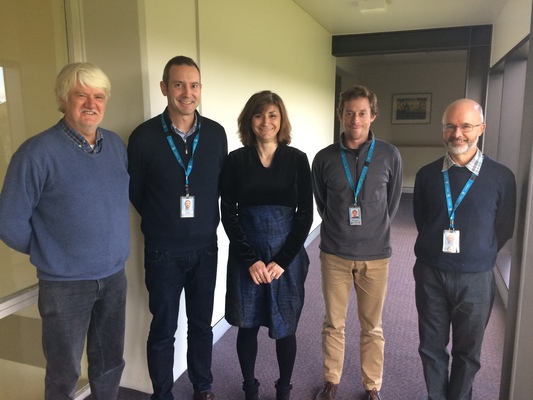Geelong scientists are at the forefront of a breakthrough that could halt the march of a devastating animal disease and preventing global losses totaling billions of dollars.
Researchers at Moolap’s CSIRO Australian Animal Health Laboratory (AAHL) worked with two teams in the US to discover genetic data that could lead to a vaccine for African swine fever.
The disease has spread from Africa to devastate pig farms across Europe as it moves closer to China. Russia lost an estimated $1 billion to the fever between 2007 and 2012, while Latvia culled 10,000 pigs after an outbreak earlier this year.
Humans were immune to the virus but at risk of its “severe socioeconomic effects on rural farmers”, AAHL warned.
But the new breakthrough promised a potential savior for so-far unaffected countries including Australia, AAHL said.
The study “for the first time” compared genetic-level immune system responses in pigs infected with low or high-virulence strains of the virus causing the swine fever.
The results helped identify a set of common genetic responses that could be the “basis” for the fever’s first diagnostic tests and vaccine, AAFL said.
“Our findings have extended our understanding of the virus-host relationship, an important element in developing new intervention strategies including new vaccine research to identify genes that stimulate protective immunity,” AAHL’s Dr David Williams said.
“Our genetic investigations shed light on how immune system genes of pigs respond to ASF virus infection and also how they influence virus replication in the host.
“We will continue working with the genetic information we have identified to further our understanding of the host’s response to ASF infection and what effect this has on virus replication. The availability of a vaccine and better diagnostic capability will go a long way toward halting the spread of ASF and managing future outbreaks.”
AAHL said the study highlighted the facility’s “vital role in Australia’s biosecurity infrastructure”.
Australian Pork’s Pat Mitchell welcomed the breakthrough on behalf of the domestic pork industry, worth $2.8 billion a year to Australia.
“ASF is a terrible disease with the most virulent strains being impossible to treat,” he said.
“Access to a vaccine may not only assist with reducing the level of the ASF virus circulating globally, it will also dramatically improve our ability to respond to an emergency animal disease outbreak.”
Swine fever vaccine imminent

Digital Edition
Subscribe
Get an all ACCESS PASS to the News and your Digital Edition with an online subscription
Nelson focuses on state seat
Geelong’s deputy mayor has stepped down from the position to pursue a seat in state parliament.
Seeks Liberal Party preselection in the seat of South...








